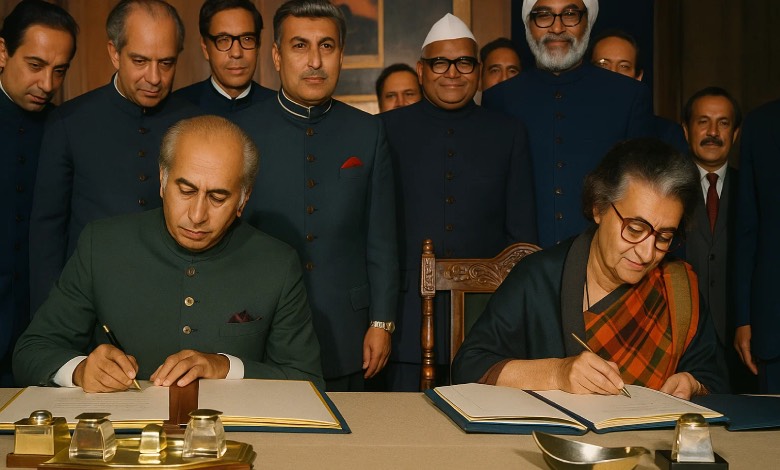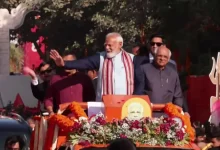Pakistan Threatens Simla Agreement Suspension: What It Means for India-Pakistan Ties | Explained
Pakistan hints at suspending the 1972 Simla Agreement after India halts the Indus Waters Treaty. What could this mean for Kashmir, the Line of Control, and other bilateral accords?

The Background
Following India’s move to suspend the 1960 Indus Waters Treaty in reaction to the Pahalgam terror attack, Pakistan has responded by threatening to suspend the 1972 Simla Agreement and potentially all bilateral agreements with India.
What is the Simla Agreement?
Signed on July 2, 1972, in Shimla, the pact followed three days of negotiations between Indian Prime Minister Indira Gandhi and Pakistani Prime Minister Zulfikar Ali Bhutto, after Pakistan’s defeat in the 1971 Bangladesh Liberation War. Brokered in part through Soviet efforts in Moscow, the discussions centered on restoring relations after the war, particularly the repatriation of over 93,000 Pakistani prisoners of war, and addressing the Kashmir conflict. The agreement committed both nations to resolve disputes through bilateral talks and marked Bangladesh’s formal recognition as an independent state in a bilateral context.
How was it received?
Both leaders faced backlash domestically. In India, critics slammed Gandhi for not converting the ceasefire line into an international border, merely renaming it the Line of Control (LoC). In Pakistan, Bhutto faced anger for agreeing to a peaceful, bilateral resolution without involving the UN. Kashmiri leader Sheikh Abdullah also criticized the deal, citing the exclusion of Kashmiri voices.
Pakistan’s Breaches
Pakistan has repeatedly violated the Simla Agreement, notably by supporting militancy in Kashmir and breaching the LoC during the 1999 Kargil conflict. Islamabad also sought international intervention on Kashmir, contradicting the agreement’s bilateral principle. India’s 1994 parliamentary resolution asserting sovereignty over the entire Jammu and Kashmir region, and the 2019 abrogation of Article 370, further eroded the agreement’s relevance. According to former diplomat Avtar Singh Bhasin, who chronicled the agreement in Negotiating India’s Landmark Agreements, the Simla pact was intended for immediate post-war issues and holds little practical significance today, especially concerning Kashmir.
Potential Impact
Pakistan’s statement on April 24 left ambiguity about whether it had formally suspended the Simla Agreement. As of now, India has not received any official communication. Analysts warn that if Pakistan no longer abides by the LoC as defined in Simla, India could also abandon it, potentially escalating tensions in Pakistan-occupied Kashmir.
Other Agreements Under Threat
While Pakistan did not specify, its broader reference to “all other bilateral agreements” could impact several key treaties. These include the 1950 Nehru-Liaquat Pact on minority rights, the 1974 protocol for religious pilgrimages allowing cross-border visits to holy sites, and the 2019 Kartarpur corridor agreement although both sides have indicated the Kartarpur pact will continue.
Additional risk areas include agreements on nuclear site notifications (1988), pre-notification of missile tests (1991), and the 2003 ceasefire agreement renewed in 2021. If relations deteriorate further, even these military confidence-building measures could collapse.
Meanwhile, India’s decision to suspend the Indus Waters Treaty could invite legal challenges from Pakistan, which views any restriction on water flow as an “act of war.” Given that India is a lower riparian state to China, any aggressive stance on river agreements will be closely monitored by both Islamabad and Beijing.




